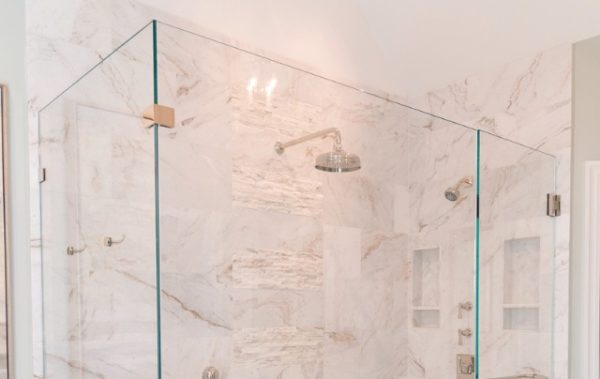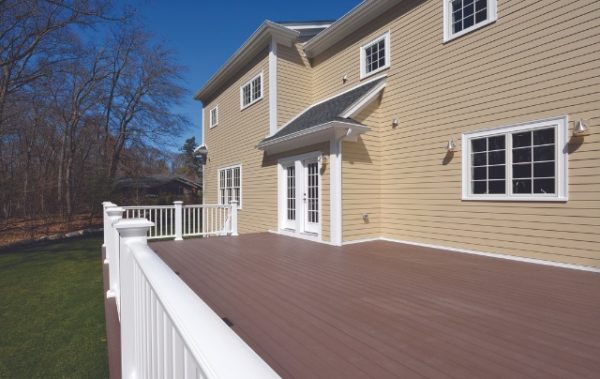How to prevent pesky garden pests

There is nothing more rewarding for a homeowner than staring at a perfectly manicured lawn and garden, courtesy of a green thumb and a little elbow grease. But homeowners know all too well that their landscaping masterpieces can turn into a playground for pests without the proper steps to control those critters.
And no one knows pest control better than Amanda Campbell, manager of display gardens at the Atlanta Botanical Garden. According to her, Georgians have to deal with a variety of insects and critters on a seasonal basis, and year-round maintenance is crucial. But fret not, homeowners. Even the peskiest of pests can be controlled—most with inexpensive, DIY solutions. Following are a few of the most common garden invaders, along with ways to eliminate them.
Japanese Beetles
With no natural enemies locally, Japanese Beetles can destroy a homeowner’s prized plants if not addressed. According to Campbell, their grubs (larvae) attack lawns in the root zone, and the adult beetles love feasting on roses. Campbell and her team simply pick the beetles off of plants and throw them in a bucket of soapy water.
Though one solution to the problem—pheromone traps—are highly popularized right now, Campbell isn’t sold. “Since they emit a chemical attractive to the beetles, you may be inviting more than you originally had. If this is the preferred method, place the trap a little outside of the garden zone just in case,” she says.
Aphids
These soft-bodied arachnids love to hide on the underside of leaves and petals, and suck out the plant’s juices. They eat a variety of plants, including prized pansies. Aphids can be easily controlled with sprays, but Campbell recommends using horticultural sprays, as opposed to those that consist of household oils and soaps, to ensure that the viscosity of the formula is correct and doesn’t harm the plant.
Carol Simpson, owner of Ashe-Simpson Garden Center, suggests using All-Season Horticultural Oil, a petroleum oil-based product, on aphids and other insects. The spray is not harmful to humans. “The product smothers the insect,” Simpson says. “Locations like the Disney parks use this product on their plants because it is safe for children. The last thing they want is for a child to get sick if they place a leaf in their mouth.”
If left untreated, aphid populations can grow into a mighty menace, potentially deforming, weakening and stunting plant growth.
Voles
These tiny rodents can wreak havoc on a lawn, as their underground burrowing significantly disturbs roots and can prevent growth. Campbell recommends discouraging voles from the area with items most homeowners already have lying around.
“Cayenne pepper, garlic, chewed bubblegum, mothballs or strongly scented soap shavings repeatedly sprinkled down their holes—individually, not all at the same time—are often offensive enough to convince them to move,” she says.
If the little varmints persist, though, Campbell notes that “A good old yard cat will definitely decrease the vole population.”
Mealy Bugs
Feeding on gardenias, orchids, ferns and even cacti, these soft-bodied bugs appear on plants as small, white blobs covered by a waxy fluff. They attach themselves to the stems of plants, drain their juices and can ruin plants or stunt their growth if a large population is left untreated. Pete LaQuaglia, owner of Greenhouse Pest Management, a natural pest-management company dedicated to using organic products for pest control, says over watering and standing water are the most common causes of a mealy bug infestation.
“Limited watering and correcting the water flow in a garden is the easiest way to eliminate a mealy bug issue. This is also true for slugs,” LaQuaglia says. “A supplemental food for organic feeders like mealy bugs [can also be placed] in the garden. This product contains orthoboric acid marinated in a corn-based granule and acts as a second food source for insects, moving them off your plants.”
 |
Greening Your Garden
Pete LaQuaglia started his natural pest-control company, Greenhouse Pest Management, three years ago when his oldest son had a severe asthma attack due to pesticides a company used to treat the family home. He vowed to look to natural alternatives using integrated pest-management principles to control pest problems. “We seek to understand the biology and habits of pests and treat the issues properly,” he says. “We use what nature uses to defend itself from pests.”
LaQuaglia says many garden pest issues are caused by over-fertilized gardens and gardens that are not kept clean. “Using products like Miracle Grow adds extra nutrients to the soil, making them 900 times more fertilized than crop lands,” he says. “The majority of bugs in the garden are organic feeding, so using fewer synthetic products and cleaning up dead foliage will help eliminate harboring areas.”
If this doesn’t work, LaQuaglia suggests giving an expert a call. Licensed products that Greenhouse Pest Management uses include:
• Garlic, spearmint and peppermint barriers. These products create a barrier that is unappealing to all types of pests. “Being natural products, they will break down in a few weeks. And the peppermint makes your garden smell good.”
• Granule bate. This mix of corn meal supplies organic eaters with another food source that is “more appealing than your plants.”
• Products made from flowers and oranges are used to address current infestations. “Oranges produce oil called limonene, which works great as a contact killer and a repellent for pests.”
 |
Simple Tips to Protect Your Garden This Summer
Deborah Harrison, owner and manager of Habersham Gardens, knows a thing or two about keeping your garden pest-free and beautiful. Habersham, a full-service landscape, maintenance and irrigation company founded in 1978, has won numerous awards over its 32-year reign, including 2009’s Best Intown Garden Center. Here are Harrison’s five tips on how to keep your garden free from pests this summer.
1. Plant yucky-tasting perennials: “Some plants are naturally distasteful to deer and rabbits,” Harrison says. “Luckily, these include some of the most beautiful perennials.” To deter deer, plant astilbe, lavender, Shasta daisy, coneflower and ferns. To ward off rabbits, Harrison suggests planting Black-eyed Susan, lambs ear and butterfly bush.
2. Deter voles: “A good amount of Perma-Til can be worked into the soil around a vole’s intended meal, like your hostas and roses,” she says. “Voles despise the feeling of this product and will avoid the area.”
3. Fight nature with nature: Purchase and release ladybugs and praying mantis larvae to control aphid, scale, whitefly and other insect populations. Use a Venus Flytrap to feed on small flying or crawling insects. “Plus, the kids will love watching [the flytrap] catch and consume their prey,” Harrison says.
4. Nematodes to the rescue: “They can be introduced to target specific problems, including outdoor flea infestations, termites, grubs, beetles and more,” Harrison says. “Nematodes work underground, killing their prey before it hatches.”
5. Stop the spread: Harrison suggests sprinkling Diatomaceous Earth outdoors to assist in killing many crawling or leaping insects, such as fleas and lice.
When Ants Attack
Though not usually a pest to plants, for both people and pets, ants are all-around annoying. Amanda Campbell of the Atlanta Botanical Garden says that if ants are left untreated, they may build their mounds around the crowns of plants, which is detrimental because plants cannot survive with soil piled high around their stems. While some ant remedies come from the kitchen (such as grits and club soda), Campbell recommends sticking with the ant baits that are sold at most hardware stores.

How to Spring Clean Your Windows

Go green with your interior design

Carpet Trends

Award-Winning Kitchens, Baths, Interior Design and More

Atlanta’s NKBA Designs of Distinction 2019 Winners

100 Things to Know Before You Remodel

What’s the simplest way to upgrade your window treatments?








